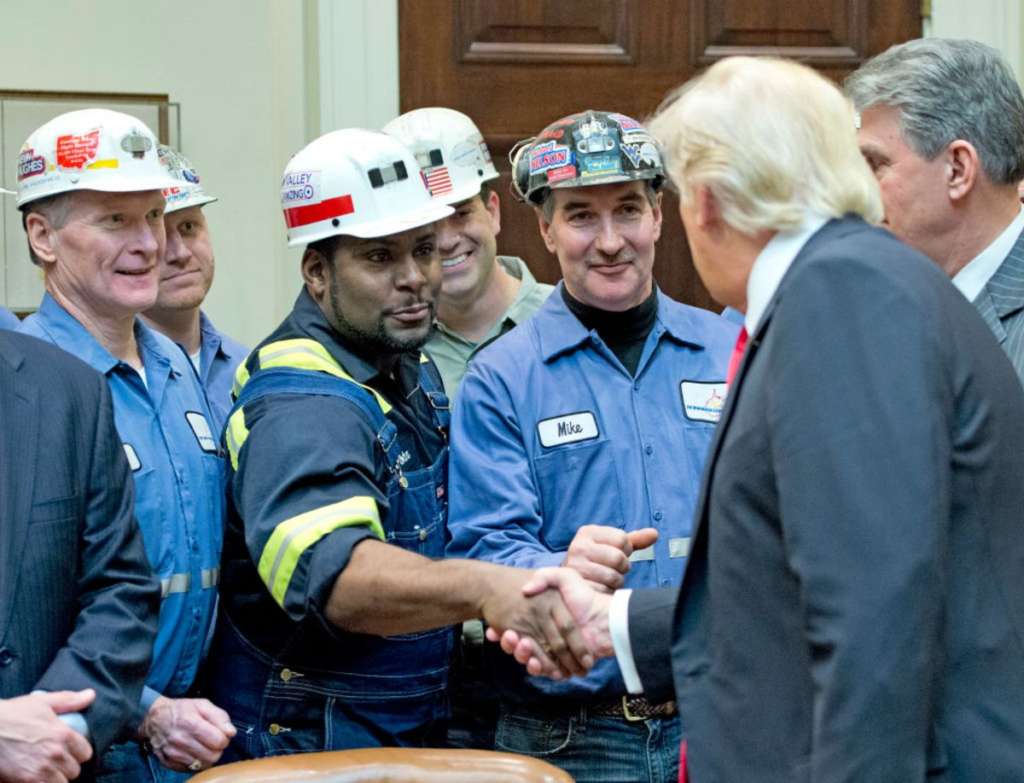Has the presidential election of Donald Trump reawakened the animal spirits in the US economy, giving businesses more confidence to create jobs? Judging from the latest data, it may have — particularly if you’re a miner, a machinist or a construction worker.
The employment report for February brought positive news for Trump. Nonfarm employers added an estimated 235,000 jobs, bringing the three-month average to 209,000 — more than enough to compensate for natural growth in the labor force. The unemployment rate edged down 0.1 percentage point to 4.7 percent. And in a sign that the demand for labor is translating into bigger pay raises, the average hourly wage gained 2.8 percent from a year earlier, exceeding the average pace of the past several years.
Some industries punched well above their weight, contributing more to job gains than their share of overall employment. Mining — particularly in areas such as coal, as opposed to oil and gas — saw the biggest turnaround: In the three months through February, employment grew at an annualized rate of 9.2 percent, compared with an annualized decline of 4.5 percent during the previous five years. Construction, including heavy and civil engineering, rose at a 6.7 percent pace, up from 3.9 percent in the previous five years. Other winners included machinery and finance.
What’s so special about these sectors? One possible explanation is that they’re expecting to gain from Trump’s policies. The president has already signed orders easing restrictions on coal miners, and has pledged to revive production. His plan to invest $1 trillion in roads, bridges and other infrastructure should be good for construction (though warm February weather may also have played a role), and certain domestic manufacturers could benefit — at least in the short term — from his efforts to raise barriers to imports. In finance, he has promised to roll back regulation and has ordered a review of a retirement-advice rule that much of the industry had opposed.
Others are tougher to explain. The strong growth in hiring at clothing and accessories stores, for example, contrasted with weak overall job growth in retail trade. Service providers, which account for more than two-thirds of all employment, hired at a slower pace than they did in earlier years, suggesting that the optimism remains far from pervasive.
To be sure, these are early days: Trump has president only a few months, not enough time to implement an economic agenda. So far, some employers appear to be giving him the benefit of the doubt. For that confidence to spread, he’ll have to follow through successfully on policies — such as well-crafted infrastructure investment and sensible measures to make banks simpler and stronger — that could benefit the economy overall, rather than boosting specific sectors at the expense of the environment or financial stability.
Bloomberg
